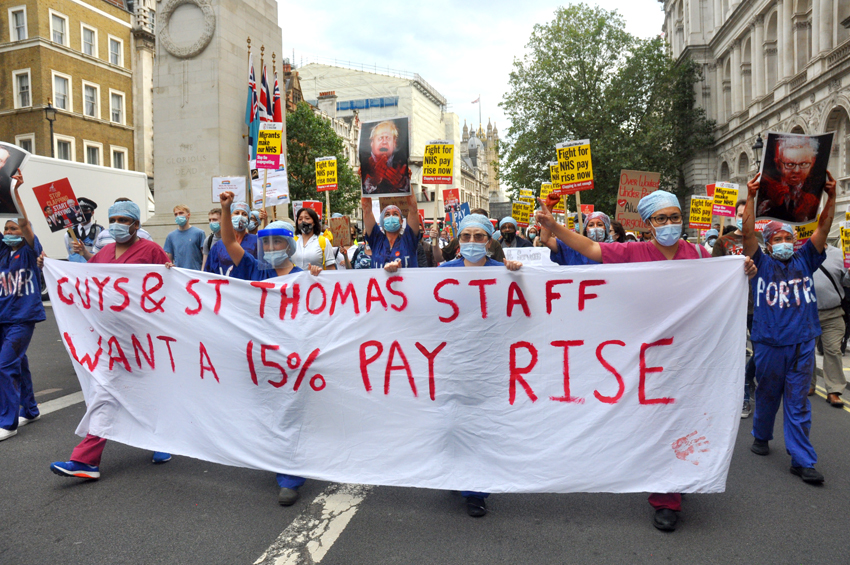UNITE general secretary Sharon Graham yesterday said below inflation rises are a wage cut with workers paying the price of the pandemic.
Speaking after new official figures showed CPI inflation at 5.1 per cent, Graham said the union will continue to base claims on the RPI figure rather than CPI because it better reflects the actual price rise experienced by Unite members.
Referring to yesterday’s rising inflation figures, Graham said: ‘Today’s figures mean our members must fight for wage rises above the current rate of inflation, as measured by the RPI.
‘Otherwise, they will be facing a calamitous drop in their standard of living.
‘Current estimates suggest that costs for the typical UK family will jump by £1,700 in 2022. Workers did not create this cost-of-living crisis so why should they pay for it?’
On calls for restraint on wage demands to avoid rising inflation, Graham said: ‘Today’s inflation figures are a reflection of rising fuel and energy costs and shortages – and that means higher bills for food, fuel and everyday items.
‘Predictably the Bank of England has said workers must show pay restraint. Tell that to the CEO of Nat West, for example – last year her wages went up by a staggering 85 per cent to £2.6 million. There’s no restraint in the boardrooms, where it’s one wage rise for them and another for us.’
Graham challenges the use of the CPI instead of RPI by the Office of National Statistics (ONS) as potentially ‘a hidden tax on workers’ wages’. The ONS CPI figure for November is 5.1 per cent, while the ONS RPI figure is 7.1 per cent.
She added: ‘The RPI, which includes housing costs, is a far more accurate measure of the real cost of living than the CPI, which is always lower. Employers favour the CPI in cost calculations because it saves them money, but the truth is that this is a hidden tax on workers’ wages. Unite will always seek wage settlements that reflect the true cost of living because anything else is a wage cut.’
With the government determined to abandon RPI altogether by the end of the decade for the lesser measure of CPI, Unite is working with economists to develop the Unite Bargaining Index. The Unite BI, which will track all real living costs, will be the union’s benchmark measure in all wage and pension negotiations.
The CPI cost of living index surged by 5.1 per cent in the 12 months to November, up from 4.2 per cent the month before, and its highest level since September 2011.
Rising transport and energy costs drove the rise, which was above forecasts of a 4.7 per cent increase, the Office for National Statistics (ONS) said.
Grant Fitzner, ONS chief economist, said a rise in fuel, energy, clothing and second hand cars were big factors.
And the cost of raw materials also rose significantly, he added.
‘A wide range of price rises contributed to another steep rise in inflation, which now stands at its highest rate for over a decade,’ he said.
Figures showed petrol prices jumped to the highest ever recorded, 145.8p a litre last month, while the cost of used cars also raced higher due to shortages of new vehicles as supply chain issues continue to hit the economy.
Even before yesterday’s figure, the food and drink industry had warned that the soaring cost of raw materials and ingredients was having a ‘terrifying’ impact on consumer prices.
The jump in inflation, twice the Bank of England’s 2 per cent target rate, will intensify debate over whether interest rates should rise.
On Tuesday, the International Monetary Fund predicted inflation would reach around 5.5 per cent early next year, its highest in 30 years, and warned the Bank not to succumb to ‘inaction bias’.
But the Bank has resisted a rate rise amid uncertainty about the impact of the Omicron variant on economic growth and people’s finances.
